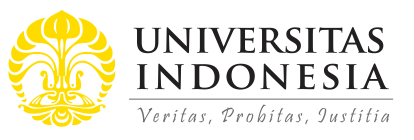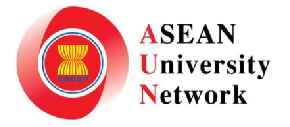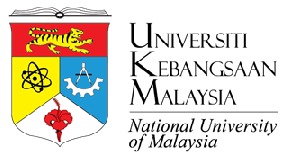
Publication Ethics and Malpractice Statement
Publication ethics in the ASEAN Journal of Community Engagement refers to the standards outlined in the Core Practices of the Committee on Publication Ethics (COPE). This includes policies on authorship and contributorship, plagiarism, and procedures for addressing ethical concerns. The areas covered include handling allegations of misconduct, managing complaints and appeals, addressing conflicts of interest, journal management, data and reproducibility, maintaining ethical oversight, and facilitating post-publication discussions.
Authorship and Contributorship
Authorship is reserved for individuals who have made significant contributions to the conception, design, interpretation, and execution of the work. Co-authors are those who have made meaningful contributions or taken responsibility for the integrity of the work. The corresponding author manages all correspondence and ensures that all co-authors are acknowledged, have reviewed and approved the final version of the paper before submission, and have agreed to its publication. Individuals who do not meet the criteria for authorship but have contributed in supportive roles, such as mentorship, data collection, or study coordination, can be recognized in the acknowledgments section.
Plagiarism
The ASEAN Journal of Community Engagement only accepts manuscripts that have not been previously published and are not currently under consideration for publication elsewhere. All submissions undergo a similarity check using iThenticate to detect any indications of plagiarism. The editorial team will address any instances of plagiarism identified in the authors' work.
Duties of Editors, Reviewers, and Authors
The following paragraphs discuss the ethical conduct of the editor, reviewer, and author as stakeholders in the article publishing process within the journal.
Publication Ethics - Authors
- Reporting Standard: Authors must accurately represent their work and objectively discuss its significance in their reports on original research. It is fundamental for authors to represent all underlying data accurately and provide adequate details and references to allow others to replicate their work.
- Data Access and Retention: Raw data related to a specific paper may be requested during the editorial review. Authors are expected to provide public access to this data, and if the paper is accepted, they should retain the data for a specific period after publication.
- Originality and Plagiarism: The authors must ensure their works are original. If they reference the work or words of others, these must be appropriately cited or quoted.
- Multiple and Concurrent Publications: Authors should avoid publishing manuscripts describing the same research in multiple journals or primary publications. Submitting the same manuscript to more than one journal simultaneously is considered unethical and is not permitted.
- Acknowledgment of Sources: Authors must correctly acknowledge the contributions of others in their manuscripts. Significant publications that influenced the study should be appropriately cited.
- Authorship of the Paper: Authorship is reserved for individuals who have contributed significantly to the conception, design, interpretation, and execution of the work. Co-authors are those who have provided meaningful contributions or taken responsibility for the integrity of the work. Individuals who do not meet the criteria for authorship but have played supportive roles, such as mentorship, data collection, or study coordination, can be acknowledged in a separate section.
- Disclosure and Conflicts of Interest: Authors must disclose any financial ties or conflicts of interest in their manuscript that could affect the results or interpretation. They should also reveal all sources of financial support for the project to ensure transparency and uphold research integrity.
- Fundamental Errors in Published Works: When authors discover a significant error or inaccuracy in their published work, they must promptly notify the journal editor or publisher and cooperate in retracting or correcting the paper. This notification allows the editor or publisher to address the issue appropriately.
Publication Ethics - Editors
- Decision on the Publication of Articles: Editors reserve the right to decide which submitted articles should be published. They are guided by ethical policies and adhere to copyright and plagiarism standards. The final decision may involve consultation with editorial board members and/or reviewers.
- Fair Play: Editors evaluate manuscripts for their intellectual content without regard to race, gender, sexual orientation, religious belief, ethnic origin, citizenship, or political philosophy of the authors.
- Confidentiality: The editor or any editorial staff must not disclose any information about a submitted manuscript to anyone other than the corresponding author, reviewers, potential reviewers, other editorial advisers, and the publisher, as appropriate.
- Disclosure and Conflicts of Interest: Unpublished materials disclosed in a submitted manuscript must not be used in an editor’s research without the author’s written consent.
Publication Ethics - Reviewers
- Contribution to Editorial Decisions: Peer reviewers assist editors in making editorial decisions and may help improve the paper through editorial communications with authors. They support editors and editorial boards in evaluating papers as the basis for these decisions and the potential enhancement of the manuscripts.
- Promptness: Assigned referees who cannot provide a review within the requested time frame or believe the manuscript is beyond their expertise should notify the editor and withdraw from the review process.
- Confidentiality: Any manuscripts received for review must be treated as confidential documents. They must not be shown to or discussed with others except as authorized by the editor.
- Standards of Objectivity: Reviewers should conduct the peer review process objectively. Personal criticism is not allowed. Reviewers are expected to provide their views and feedback clearly with coherent arguments.
- Acknowledgment of Sources: Reviewers should identify relevant published work that the authors have not cited. Any statement indicating that an observation, derivation, or argument has been previously reported should be accompanied by relevant citations. Reviewers should also alert the editor to any substantial similarities or overlaps between the manuscript under consideration and any other published papers they are familiar with.
- Disclosure and Conflict of Interest: Privileged information or ideas obtained through peer review must remain confidential and not be used for personal advantage. Reviewers should not consider manuscripts if they have conflicts of interest arising from competitive, collaborative, or other relationships with any authors, companies, or institutions connected to the papers.
Procedures for Addressing Misconduct
The journal editor will act in accordance with the principles and processes outlined in the (COPE best practice) to resolve complaints and address suspected misconduct fairly, related to pre- or post-publication.







